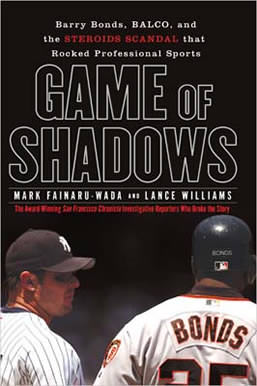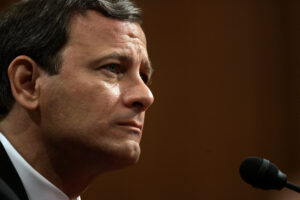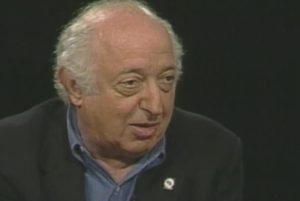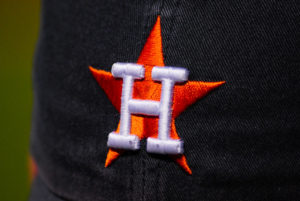The Truthdig Interview: Mark Fainaru-Wada
Mark Fainaru-Wada is one of two San Francisco Chronicle reporters who broke the Barry Bonds steroid stories. With a new book out, Fainaru-Wada discussed with Truthdig contributor James Harris whether Congress doesn't have better things to do than hold hearings into pro sports; whether pro baseball really cares about cleaning up its image; and the federal government's attempts to get Fainaru-Wada to disclose his confidential sources.
Editor’s note: Mark Fainaru-Wada is one of two San Francisco Chronicle reporters who broke the BALCO stories about steroid use in professional sports?a scandal that ensnared baseball superstar Barry Bonds, among many others. The outrage that greeted the series sparked congressional hearings into performance-enhancing drugs in pro sports, and also earned Fainaru-Wada a host of legal problems: a federal subpoena compelling him to disclose the confidential sources of his stories and a lawsuit by Bonds.
Just this week, Bonds dropped the suit, but the government is still compelling Fainaru-Wada and his Chronicle colleague to disclose their sources. The reporters are fighting the subpoena. Truthdig contributor James Harris spoke with Fainaru-Wada upon the publication of the book he co-authored on the issue, ?Game of Shadows.? They discussed whether Congress doesn?t have better things to do than hold hearings into pro sports; whether pro baseball really cares about cleaning up its image; and why it seems like Fainaru-Wada has a grudge against Barry Bonds.
James Harris: Today we?re happy to sit down with San Francisco Chronicle investigative reporter and the author of the book ?Game of Shadows,? Mark Fainaru-Wada. And for those of you who don?t know, Mark has been part of a wide controversy about BALCO, which we?ll talk about, about steroid use in baseball, and most notably he?s been on the heels of Barry Bonds, who many people have mixed feelings about. But today we have the pleasure to sit down and talk with Mark Fainaru-Wada, who?s done a lot of writing and interviewing about the topic. How are you today, Mark?
Mark Fainaru-Wada: I?m very good, thank you for having me. How are you?
I?m fantastic. First of all, if you could just give us a quick version of what you saw happening. What intrigued you about this story?
Well for us, this story starts in September of 2003. That?s when the federal government raids this little lab in San Francisco known as BALCO, or Bay Area Lab Cooperative. At the time no one really knows what it is or anything about what the raids are about. Myself and Lance Williams are members of the investigative team on the paper. And we were really just assigned to try and figure out if there was a story there, and what was going on. I initially went in and tried to see what the purpose of the raids were. We pretty quickly found out?if you went to the website there were a host of elite athletes on there. So that certainly perks up everybody?s interest. But it?s an IRS raid, so maybe people are thinking it?s just a tax case. But pretty early on we found out there was a grand jury that had been subpoenaed. We had a tipster provide us some information on what had happened in the raids. And the tipster indicated that the raids had yielded steroids, that the case was about performance-enhancing drugs, and that some of these athletes, including Bonds and others, would be implicated for their use of these drugs. That was about two weeks after the raid, so obviously that ratcheted up the interest of the paper. From that point on, pretty much Lance and I were on the story full time, and just trying to find out anything and everything we could about the investigation, about these folks who were involved, about the athletes.
In terms of seminal moments for us, there?s a point where we get to hear an audio recording, and that audio recording is of Bonds? personal trainer, this guy Greg Anderson. And on the audio recording, Anderson is talking about not only his own experience with performance-enhancing drugs, but he?s talking about the undetectable stuff he?s providing to Bonds in 2003. So as we?re going along we?re learning more and more and we?re seeing where the story is headed?not just with Bonds but with track and field and the NFL, and it?s becoming clear that it?s a pretty substantive story that?s not going to quit.
The source that you mentioned?as a journalist I certainly understand the need to protect sources. But my question to you is: What would you say to the average person who says, ?Well, you?re probably just protecting the source because you slandered Bonds, or you?re making this stuff up?? How would you respond, and how have you responded, because I know you?ve been brought to task on this issue of protecting your sources. Why are you protecting your source?
Let me say, there?re a number of sources for this book. There?re over 200 people that we talked to. Many of them are on the record. Much of the material is on-the-record material. But there are certainly confidential sources who provided us with information?whether it?s recordings, whether it?s grand jury testimony, whether it?s statements to federal investigators?people whose livelihoods were going to be on the line if they were outed for providing us with information. I would just say people need to take a look at what the role of the media is, in terms of serving the public and providing information that is important and relevant to them. We think, and I think it?s hard to argue that these stories were anything but providing a public service. They generated a national discussion on steroid use; they compelled Congress to hold hearings on the issue; and they exposed sports for what it is in many ways?certainly baseball and track and field and the NFL.
This was a grand jury case; much of the material was secret. It didn?t have to be, though; the government prosecuted this case in such a strange way. They protected all of the athletes by redacting their names. And I would certainly argue that if the public wants to feel like its government is being held accountable, that big business is being held accountable, and that wrongs are going to be exposed, then it?s going to need journalists who are going to be able to rely on confidential sources in certain circumstances, to be able to provide that information. Otherwise you?re going to end up with a quite sheltered view of what?s going on in your world.
Let me get this right: Was the information you got from leaked grand jury testimony?
Some of the information that makes up the stories that we?ve written–and the book?is from grand jury testimony. Yes.
We?ve done nothing illegal. The government is arguing that whomoever, or whatever sources might have provided us with that information, [the government] is arguing that they broke the law. Whether it?s contempt of court, whether it?s providing grand jury testimony, they?re arguing that a law has been broken. Not that we?ve committed it, but they want to use us as witnesses to try and help them get to the bottom of this crime, as they call it.
That makes sense; that sounds like some parts of our history that we don?t care to revisit, where the media is, in fact, part of the legal arm of the government.
[Laughs.] Well, you?re not going to get any disagreement from me. I think it?s a dangerous precedent. It?s a troubling thing to see the government seemingly much more comfortable taking this approach than previously. But the attorney general said something completely to my colleague Lance Williams and me the other day, which is that he didn?t see?he saw this as a terrible crime, as he said, and that there was no distinction between the types of crimes that needed to be investigated and that he had no problem using the media, if that?s what it took, to go after these crimes. I think you hit it right on the head: Do you really want your media being a wing, essentially, an investigative wing of your government?
This is the state attorney general, or the federal?
This is the federal attorney general.
Wow.
This is Alberto Gonzales.
Wow. Why do you think the government is so hot on the heels of?I mean we saw this with the doping case in the Olympics; in fact Lance Armstrong was just cleared; the French, of all people, had accused him. Why do you think the government, America especially, is so hot on the heels of baseball? And now football? What is it?
It?s interesting: I have sort of varying views on where the government is on this issue. I think on the one hand they have clearly demonstrated an interest in trying to clean up sports; that they prosecuted this case, and they?ve gone after other cases. However, I think some of their motives can be questioned. If they truly wanted to clean up sports when they prosecuted this case, they wouldn?t have protected all the athletes. Because clearly the story resonates through the athletes.
Congress, meanwhile, has clearly expressed an interest in pressuring baseball, because they think the story is important; they think, frankly–and I think this is true?that the story resonates not just at the pro level, but that it trickles down to colleges and high schools. If you?re got high school students thinking they?ve got to use this to succeed, then this is obviously problematic. So there?s clearly a political element to this story, and a reason why they say it?s important, but I think they?ve sent mixed messages in how much they?re willing to protect the athletes or the sports themselves.
I read an interesting quote. We talked about it a little bit. I think it was a turning point. We talked about it a little but actually on my son?s first birthday, Dec. 3, your editor Phil Bronstein said that the public?s right to know the extent of illegal drug use in sports outweighed the confidentiality rules of the grand jury proceedings. It seemed like?and I kind of read some subtext around it?he kind of saved you and your partner, Lance, from even having to deal with the question that the media was raising. Isn?t it great to have an editor in your corner like that?
Well, the Chronicle has been so supportive of us. Phil Bronstein has been a wonderful editor, he?s been nothing but encouraging of work we?ve been doing covering the story, and now backing us in this uncomfortable situation where the government wants us to reveal our confidential sources. Similarly we?ve got great lawyers at Hearst Corp. who are also defending us vigorously, and believe and hope that we?re going to get some kind of relief in this thing, and that a judge is going to see through this thing and recognize that it might not be such a good idea. But we do believe strongly in the story and the rights to this. Another thing to remember about grand jury testimony is: These athletes were called to testify. There were no guarantees that their information would remain secret. In fact they could come out publicly, if they wanted to, and acknowledge whatever they said to the grand jury. There?s nothing precluding them from going and testifying and walking out and saying whatever they want. There?s also an expectation when they testify that a case is going to go to trial. And that if the case goes to trial, they?re going to be called to testify in open court about exactly the same kinds of things they testified behind closed doors before the grand jury.
We think, again, that the stories were important, that they impacted society. And also they spoke?the stories we wrote?they spoke the words of the athletes themselves. It wasn?t speaking to necessarily indicting the men who were being charged; it was looking at what these athletes were doing, and looking at how they might have been cheating the public and lying to the public. And frankly, that was what we always thought the story was about.
Do you think the government should be as focused on you?on prosecuting you, on helping you become a part of their prosecution, or do you think there?s enough room, enough space, enough time in the day in the Senate to really go after baseball? Is this issue that important in your mind?
I think this idea that they?re doing one thing at the expense of another is sort of a misplaced logic. These guys, you know–what is it? They can walk and chew gum at the same time.
[Laughs.]
I don?t think that?s part of the issue. And I do think the story is important. We?ve written about extreme cases, obviously. You have a kid, there?s a kid in our area who committed suicide in what his parents believe was the wake of his steroids use. And there?s no question that these kids look to these athletes as role models?whether the athletes want to be role models or not. I think the story is important on a number of levels. And I don?t think because Congress is interested in it, because Congress is pressuring baseball, that means they?re forsaking other more important issues in the country. That said, do I think the federal government should be coming after us, and they have better things to do? Absolutely. Absolutely because I think they?re making a huge mistake for the reasons we talked about earlier. If you?re going to start having reporters being investigative arms of the government, the public is not going to be well served by the press. We?re not exactly the most popular folks in the world, but if the public really wants to be honest with itself, we are providing a service for them, and we are a check and balance for them. And they have a right to know what their governments and big businesses are doing.
You know what? It?s still tough for me to walk and chew gum at the same time.
[Laughs.] Yeah, it?s like patting the top of your head and rubbing your belly at the same time.
[Laughs.] Mark, what?s been the most difficult moment in this? Because I could imagine if one day the FBI or someone from the government called me?in fact my friend was being interviewed for a Department of Justice job and he called me in advance to tell me that someone from the FBI may call. I kind of took it lightly and moved on with my day. Two weeks later I get a call that says that FBI is on the phone. I said, ?Uh- oh, they caught me??and I hadn?t done anything. But I can imagine the tension you must feel. What?s been the most difficult part of this process? And it?s gone on for a year and a half, two years.
There are so many difficult components of it. The story itself has been difficult, because so much of the information has been shielded from the public. So there?s been lots of what Lance likes to call ?hard slogging? in trying to get some of the material that we could use for the paper and ultimately use for the book, so the reporting has been one of the most difficult things. As well, the repetitive nature of the story, and worrying every day that you?re going to wake up and someone?s going to beat you on it and end up with information you were hoping to get for yourself. As far as the threat from the government?s concerned, it?s always been sort of bubbling there. We hear little things about the investigation, we hear they might be coming after us, and then we hear they?re not. So that hasn?t been easy, knowing it?s out there. In some ways it?s a relief to know that it?s finally sort of dealt with. Of course we don?t like the way they dealt with it. So certainly it hasn?t been without its tense moments. I guess it?s all just part of the process, and we?re going to have to go through it and hope, again, that cooler heads prevail.
What was the final verdict?
This is an ongoing issue. We were subpoenaed about a month ago now to provide our sources. Then our lawyers filed a brief with the district court here in San Francisco just last week trying to quash the subpoenas, trying to shoot them down. And the government now has about three weeks to respond to our brief, and then there?ll be a hearing in court on August the 4th. And at that point there will be oral arguments, and the judge will take some time to rule. That will be the first part of the process. I think it?s going to be an ongoing deal; I think it?s going to take at least another year before it hashes itself out?unless something strange happens and clears everything else up.
Which is the hope: Maybe the government will take some Robitussin, or something.
[Laughs.] Yeah, they?ll wake up and say, ?Wait a minute, we didn?t mean to do that.?
[Laughs.] That would be nice. Let?s talk a bit about your book, ?Game of Shadows,? which of course is about this process, about the BALCO story. Where did you and your co-author, where did you guys come up with the title, ?Game of Shadows??
Well actually, I?d love to say it was ours. In fact we were sort of down on it when we first heard it. And now we just laugh at ourselves, because I think it?s a wonderful title. Our editor actually had the idea. Brendan Cahill is his name. He?s a fantastic editor at Gotham Books. And we were all throwing around ideas for a book title, and he came up with this one. It?s turned out to be a perfect title.
Why would you say it?s perfect?
Well, because I think it really reflects what the book is trying to say, which is that the games you?re seeing are really being played out in the shadows. They?re being played out behind the scenes, and so much of what you think you?re seeing is really not there?sort of a mirage in some ways. And it?s the shadowy figures like a Victor Conte, like a Greg Anderson, who are not on the field of play, but who are behind the scenes, who are really in many ways impacting what you?re seeing. Conte is really an amazing figure. When you look at the people he came in contact with, they have risen to some amazing heights. You?ve got Bonds, obviously, who is now chasing Henry Aaron. You?ve got Kelly White, a track star who won the 100-meter and the 200-meter championships. You?ve got Tim Montgomery, who turned into a world record holder for a time in the 100 meters. You?re got Bill Romanowski, who plays an unprecedented number of consecutive games in arguably the hardest position in the NFL, middle linebacker or linebacker. And Conte has this ability to make guys better than they?ve ever been. So these are the guys who are impacting games in a way that you don?t necessarily see.
Do you think Barry Bonds took steroids knowingly?
Yes. We?re not hemming and hawing around that. The book makes it clear that after the ?98 season, Bonds decided it was time, based on what he was seeing going on around him, that he himself was going to go on a regimen of performance-enhancing drugs. He turned to Greg Anderson, his personal trainer, who had an experience with steroids, and who began implementing a regimen for him that ultimately went from some fairly traditional body-building drugs to a more elaborate regimen of drugs through a hookup with Victor Conte, this self-made scientist. And that included a range of substances, from human growth hormone to these undetectable steroids that were at the heart of the BALCO case, known as the cream and the clear.
I saw [John] Schuerholz, the Braves? GM, talking about this, and he said he was certainly aware of some of the players that were using. And many former players said, ?Yeah, I knew.? I heard guys like Andy Van Slyke on ?Costas Now? on HBO, saying, ?Hey, I knew people were using. I wish I had done it.? Do you give Bonds, do you give any of these guys, nowadays, who obviously are, some would say clearly using drugs, clearly using steroids, do you give them any leeway, and breaks, because they were doing what others were doing?
I think the players are going to do what players need to do to succeed. They need to be reined in?I don?t hold the players fully responsible in this situation. The league fostered an atmosphere where it was acceptable, basically, where the game was celebrated for what it was turning into, and no one wanted to investigate in any serious way, or look at it in any serious way. Lance is often talking about Jim Bouton, the former pitcher, and his book, and discussions he?s had about how players are going to do what they need to do, and it?s the responsibility in some ways for the league to hold them in check?to restrain them from acting beyond what?s acceptable behavior, so that they are?for their own health purposes, and for the integrity of the game. So it?s certainly disingenuous to hold the players wholly responsible, or to hold Bonds any more responsible than you would criticize Mark McGwire, Jason Giambi or anyone else, or any of these guys who were using earlier at the time. This is what the sport became, and some guys decided that this was the tack they were going to take.
Isn?t Bonds an easy target, though?
He certainly is an easy target for people away from the story, for columnists, for everybody for a number of reasons: He?s not the most popular figure; he doesn?t endear himself to everybody. I have to say: For our purposes, people want to make it that we targeted Bonds, or we were after Bonds, that we wanted to expose him. You know, all I can say is what I?ve said dozens of times now: We didn?t start this investigation. It was a federal investigation that the government went after, and that did target men who happened to be incredibly closely tied to Barry Bonds?his personal trainer, Anderson, who ends up being indicted and pleads guilty, his personal nutritionist, Victor Conte, who is indicted and pleads guilty to steroid distribution. There?s no way getting around Bonds being a central part of this story. He?s now chasing the most hallowed record in all of sports, arguably–Hank Aaron?s record; he?s now the subject of a perjury investigation; he?s now the subject of a Major League Baseball investigation. You can?t do this story without Bonds being a central figure, if not the central figure.
It seems to me like you?re doing?and more work like this needs to be done. But when you look at the work you have done to this point, it would seem that it has been minimal, that the effect has been minimal. How we continue the rejuvenation of sports, how do you, in effect, remove drugs from baseball and football? Many say you can?t do it.
Yeah, I think this is a complicated issue in many ways. I would argue, somewhat immodestly, that although there?s an argument to be made that the impact has been minimal, there?s nothing minimal about baseball changing its steroid policy not once but twice in the wake of the BALCO scandal. And some of that has to do with our reporting, I think. Congress holding hearings, a national dialogue on sports and steroids?I think these are not minimal things. There?s an awareness now about this issue that did not exist in the public five years ago, frankly, in the public?s mind?or three years ago in the public?s mind, and that?s not insignificant.
That said, there?s no question that drugs will remain a pervasive part of sport, and will always continue to be a pervasive part of sport, because the cheaters will always be ahead of the testers. If baseball truly wanted to clean itself up — I think there?s some question as to whether they do — they would put in place a much stricter steroid policy than they have, which does not have all the loopholes that it does.
That?s a roundabout answer to get back to the question you asked me: ?What would you tell a kid who wants to get into this?? And my response is: Look, one of the things that?s lacking considerably in newsrooms around the country, newspapers, TV, everywhere, is true, investigative sports journalism. Because papers and TV and radio have not devoted space or energy to people focusing specifically on sports investigations. The sports section has been traditionally a forum for covering games, writing features. And money has a lot to do with this. It?s hard for people to free up a body to look at these stories. But I think you have to start treating sports as big business?which is what they are?and covering them the same way you cover government, covering them the same way you cover massive corporations. There?s nothing wrong with doing some real serious investigating and probing into how these bodies work, and whether what you?re seeing is real.
I think we both agree that sports in some ways does reflect society. And the things we see in sports certainly reflect some of the societal problems?especially around drug use and drug abuse. I?m happy to know you?re doing good work. Mark Fainaru-Wada, investigative reporter for the San Francisco Chronicle, has a book out, and I strongly urge you to go and buy it. The name of the book is ?Game of Shadows? and what?s that web site, Mark?
It?s gameofshadows.com.
You can also find it on Amazon. And maybe we can check back in with you, and hopefully you?ll be free and clear and doing some more good investigative work.
Well, that?d be great. Lance Williams and I are looking forward to doing our jobs, so that?d be great.
Thank you, Mark.
Your support matters…Independent journalism is under threat and overshadowed by heavily funded mainstream media.
You can help level the playing field. Become a member.
Your tax-deductible contribution keeps us digging beneath the headlines to give you thought-provoking, investigative reporting and analysis that unearths what's really happening- without compromise.
Give today to support our courageous, independent journalists.





You need to be a supporter to comment.
There are currently no responses to this article.
Be the first to respond.